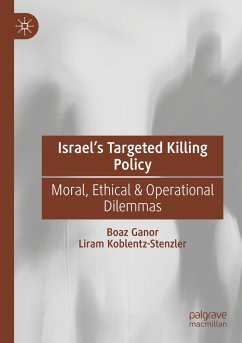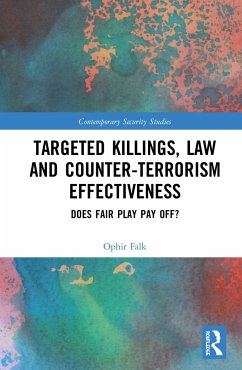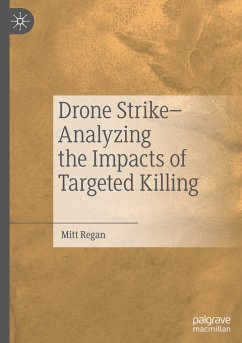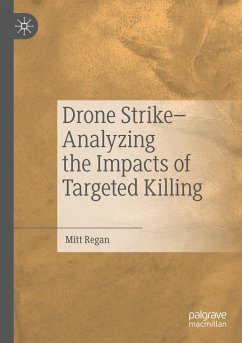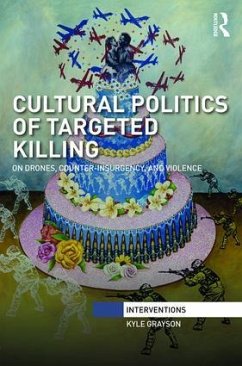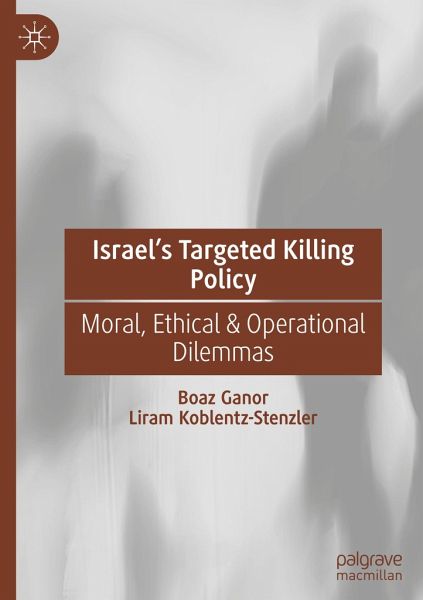
Israel's Targeted Killing Policy
Moral, Ethical & Operational Dilemmas
Versandkostenfrei!
Versandfertig in 6-10 Tagen
106,99 €
inkl. MwSt.
Weitere Ausgaben:

PAYBACK Punkte
53 °P sammeln!
The book explores the main moral, ethical and operational dilemmas of targeted killings from an Israeli perspective. Even though many countries contending with terrorism have adopted this tool (either overtly or covertly) within the arsenal used in implementing their counter-terrorism policies, it seems that Israel, as one of the world's leading practitioner of targeted killing in its counter-terrorism effort, constitutes the most appropriate case study for reviewing implications and dilemmas associated with this practice. Each chapter will present a different ethical-moral-operational dilemma...
The book explores the main moral, ethical and operational dilemmas of targeted killings from an Israeli perspective. Even though many countries contending with terrorism have adopted this tool (either overtly or covertly) within the arsenal used in implementing their counter-terrorism policies, it seems that Israel, as one of the world's leading practitioner of targeted killing in its counter-terrorism effort, constitutes the most appropriate case study for reviewing implications and dilemmas associated with this practice. Each chapter will present a different ethical-moral-operational dilemma emanating from a deployment of a targeted killing. The analysis of Israeli considerations and solutions to these dilemmas is built around interviews with Israeli decision-makers, former senior security officials and other experts. The chapters also cover public opinion polls in order to highlight the views of the Israeli public vis-a-vis each dilemma. Finally, chapters will conclude with lessons learned and offer recommendations for a practical and moral solution. The final chapter then draws together universal conclusions and recommendations for the use of targeted killings.





